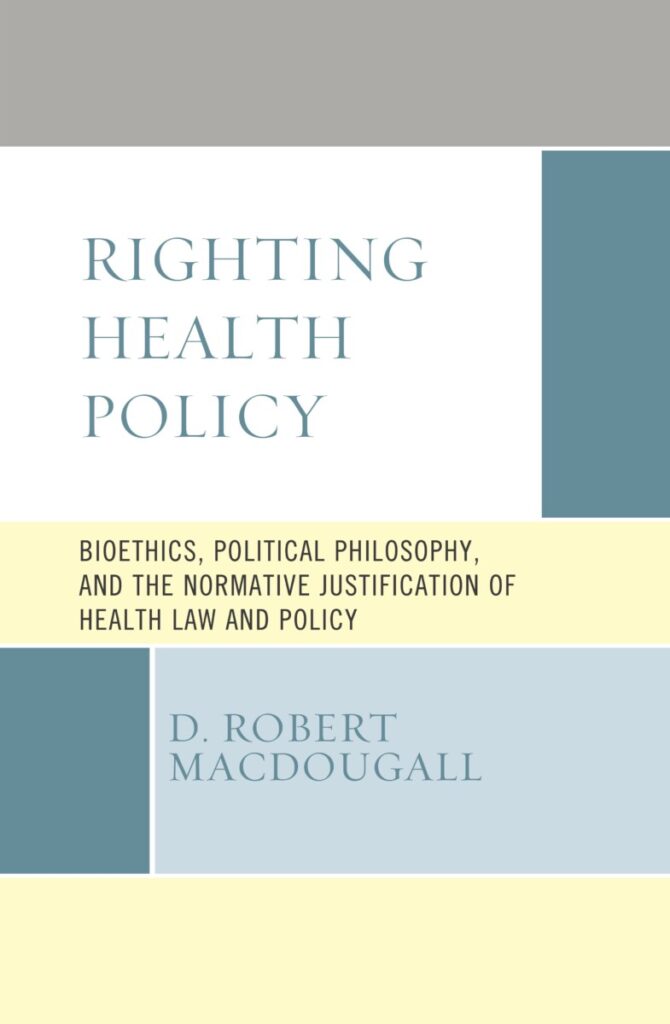In Righting Health Policy I argue that we need political philosophy to evaluate health law and policy. It’s not enough to just determine whether laws require people to do what is moral or just. To figure out if a law is good or bad, right or wrong, we need to know what it is that governments should be doing and not merely what the people governed by them should be doing.
I also argue that bioethics has long overlooked this problem. I give a Kantian account of the significance of the problem for the field and the way to fix it.
The book explains:
- How bioethics has consistently sought to influence law and policy, while almost completely avoiding fundamental questions about what governments should or may do
- Why bioethics did this
- How Kant distinguishes between principles for morals and principles governing the exercise of political power
- How Kantian principles for politics can help us make progress in intractable or otherwise problematic bioethics debates about 1. markets in kidneys and 2. the ethical and legal standards for informed consent in clinical medicine.
Contact me for a discount code!
Advance Praise for Righting Health Policy
“This book should be read by any bioethicist who wants to recommend change in laws, regulation, or public policy. It shows convincingly that such recommendations require engagement with deep issues in political philosophy and cannot be made on the basis of ethical analysis alone. In the detailed analysis it also shows that bioethicists have often appropriated the ethics of famous philosophers while completely ignoring their political philosophy leading to unacknowledged inconsistencies.”— Søren Holm, University of Manchester
“In Righting Health Policy, MacDougall argues that since bioethics addresses questions of law and policy its discussions should be informed by political philosophy, especially Kantian political philosophy. MacDougall’s defense of this revolutionary view is careful, scholarly, and persuasive–and given the importance of Kantian theory in bioethics, must be taken seriously by all who work in this field.”— James Stacey Taylor, The College of New Jersey
“D. Robert MacDougall has done us all a service with this carefully argued examination of the role of political philosophy in bioethics. His treatment of Kantian themes is particularly welcome, showing how illuminating these can be, particularly in debates about organ transplantation and markets in organs. This is an important contribution to bioethics and to thinking about public policy for biomedicine.” — Richard Ashcroft, City Law School
“D. Robert MacDougall’s Righting Health Policy explores ways in which philosophical analysis regarding the legitimate function of government is often absent from major works on healthcare policy and bioethical methodology. It offers a powerful conceptual geography demonstrating the importance of careful political philosophy for bioethics with application to such topics as healthcare distribution, human subjects research, and organ transplantation.”— Mark J. Cherry, St. Edward’s University
Robert MacDougall’s book is an astute defence of the vital role of political philosophy in bioethics. To justify health law and policies we need tools that differ from the ones traditionally found in moral philosophy. This book compellingly lays out the innovative approaches that a political perspective on urgent practical concerns promises to deliver for a novel bioethics. MacDougall carefully employs a Kantian framework in several case studies, which illustrate his methodological conclusions.”— Thomas Schramme, Professor of Philosophy, University of Liverpool




